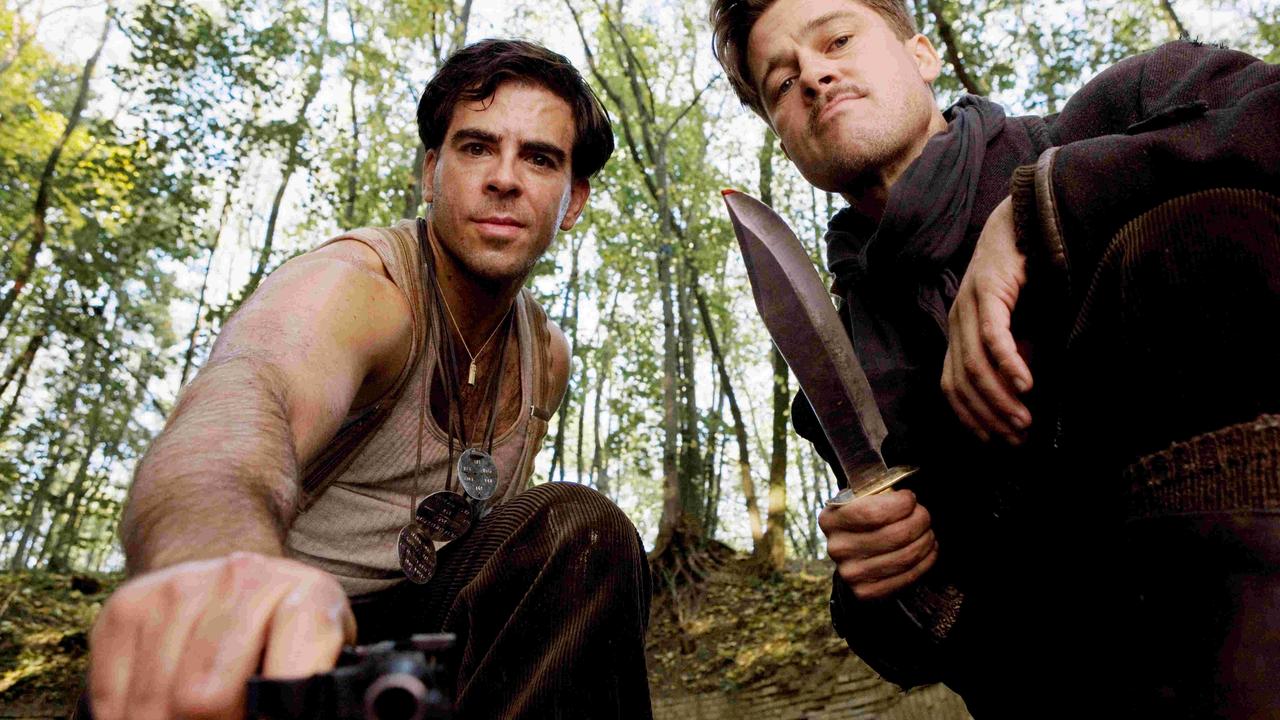
A successful film is more than the sum of its parts, but often within a powerful film, there are certain memorable scenes that speak to the strengths of the film itself. With countless movies released every year, crafting a memorable scene within a great film is no easy feat. Quentin Tarantino has become one of Hollywood’s most well-known and successful directors, and he has created many memorable scenes during his 25 years in the industry.
While many of Tarantino’s scenes are memorable for their extreme violence, he has also written and directed many great non-violent scenes featuring brilliant performances. These great scenes are often the result of Tarantino’s witty dialogue, the actors’ tour de force performances, and the absurdity of the situation itself.
20. Heist Planning Scene (Reservoir Dogs, 1992)
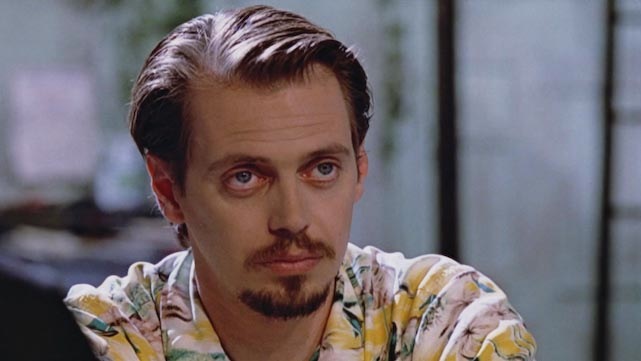
Tarantino films usually involve criminal activity and black comedy, and this scene combines the two elements brilliantly. After being assigned aliases based on colours, this ragtag group of criminals argue over their colour allocations.
Combining Tarantino’s flair for humour with the actors’ spot-on comedic timing, the characters voice crude complaints, such as “Mr. Brown” being too close to “Mr. Shit,” and “Mr. Pink” being like “Mr. Pussy.” Gruff old mobster Joe Cabot (Lawrence Tierney) explains that when planning the previous heist, arguing over changing names only caused further problems, so he won’t let people change their names anymore.
By showing the comedic nonsense that goes on in the criminal underworld, Tarantino highlights the absurdity of what should be a serious situation. Even though they are about to commit a violent crime, these tough guys are concerned that their aliases will diminish their manliness.
19. Mr. Orange’s Backstory (Reservoir Dogs, 1992)
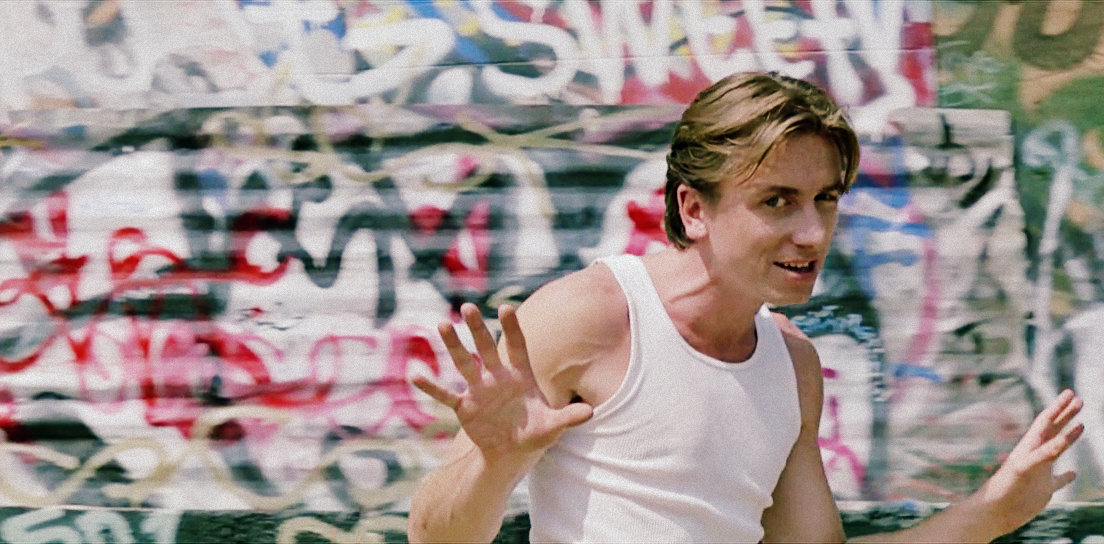
Mr. Orange’s (Tim Roth) backstory shows him practicing to convince Cabot that he is a low-level criminal needing work, and fellow police officer, Holdaway (Randy Brooks), tells him to memorise a made-up incident that happened to him during a drug deal.
It is a long and detailed story, full of swearing and references to drugs and The Lost Boys, of how he went to meet someone at a train station for the deal, and when he goes into the toilets, he encounters some police officers and a police dog who knows Mr. Orange is up to no good, and how Mr. Orange handled this situation.
The camera work in this scene is fantastic with the 360-degree camera shot when Mr. Orange is in the train station toilet, and the frantic pace of Orange’s lines highlights his anxiety. These factors create a sense of tension that matches with the rest of the film, despite being a made-up situation, and shows how sneaky and clever Mr. Orange is.
18. The Bear Jew (Inglourious Basterds, 2009)
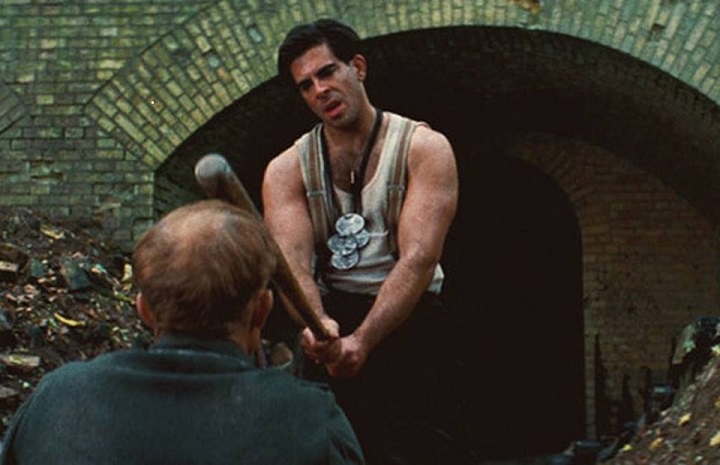
The Basterds demand that the Nazi soldier they have captured point out on a map where other Nazis soldiers are stationed. The Nazi refuses, much to the delight of the Basterds, whose only source of entertainment is their comrade, Sergeant Donny “The Bear Jew” Donowitz (Eli Roth).
There is great tension built up in this scene due to the Nazi anticipating his own brutal death, displayed with the orchestral music usually heard in Spaghetti Westerns, and the sounds of the bat hitting the walls as the Bear Jew exits a tunnel and comes toward the Nazi.
This is a classic case of Tarantino’s use of sound and music to let the audience know something violent is about to go down. This scene is also a great introduction to the Basterds, a very violent version of the soldiers in classic war films like Kelly’s Heroes and The Dirty Dozen, films Tarantino holds in high regard.
17. The Bride in the Coffin (Kill Bill: Volume II, 2004)
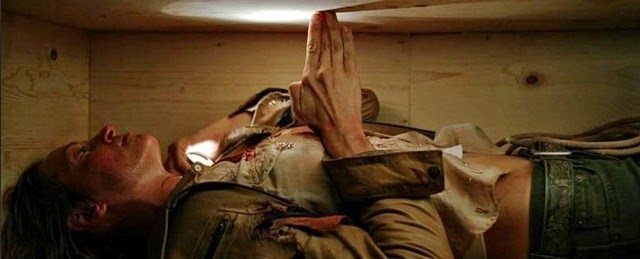
The Bride (Uma Thurman) is buried alive when she is ambushed by Budd (Michael Madsen). The fear in The Bride’s eyes and her whimpering says it all.
One of the quietest scenes in any Tarantino film, the lack of music in this scene emphasises the hopelessness of her situation. This scene conveys the true sense of dread that The Bride has faced at the hands of her former squad members, and how she must face this adversity again in order to seek her revenge.
16. Vincent and Jules Take the Briefcase (Pulp Fiction, 1994)
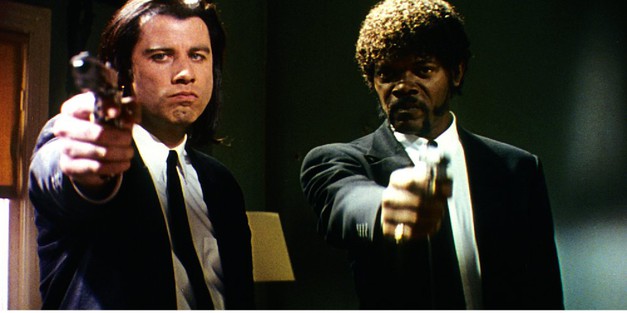
Two older streetwise hitmen, Vincent Vega (John Travolta) and Jules Winnfield (Samuel L. Jackson), are sent by their boss, Marsellus Wallace (Ving Rhames), to retrieve a mysterious briefcase that is in the hands of traitor Brett (Frank Whaley). Vincent retrieves the glowing briefcase, adding an element of mystery to the film that movie buffs still debate to this day.
Jules subtly threatens their targets by helping himself to Brett’s burger, often with close-ups of Jules’s and Brett’s faces, showing that Jules knows he has all the power in this situation and that Brett is screwed.
This leads to Jules’ infamous (and plagiarized) Biblical speech about enacting vengeance on those who have done wrong, before killing these men. Not only does it show that the previously chilled-out Jules can wreak fury on people, but is also a great early scene in what has become one of the most popular films ever made.
15. Ending Scene in Diner (Pulp Fiction, 1994)
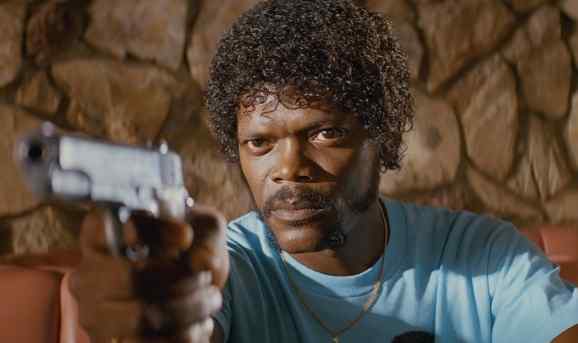
In the final scene of the film, Vincent and Jules are having breakfast after the ordeal of cleaning a corpse out of their car. Jules talks about how he wants to wander the earth after his after not being shot in the apartment, despite Vincent’s worries about his plan.
Tarantino’s non-linear approach to storytelling allows this scene to tie in with the opening scene of the film where Ringo (Tim Roth) and Yolanda (Amanda Plummer) plan on robbing the restaurant. Their robbery is successful at first, until they try to rob Jules. He explains to Ringo that he usually would have killed him on the spot, but because of his new way of thinking about life, he is willing to give the couple a chance to turn their lives around.
This life-changing mysticism that Jules is preaching not only provides a great conclusion to all the crazy events throughout Pulp Fiction, but the high tension of all the actors, especially Jackson, is hard to match.